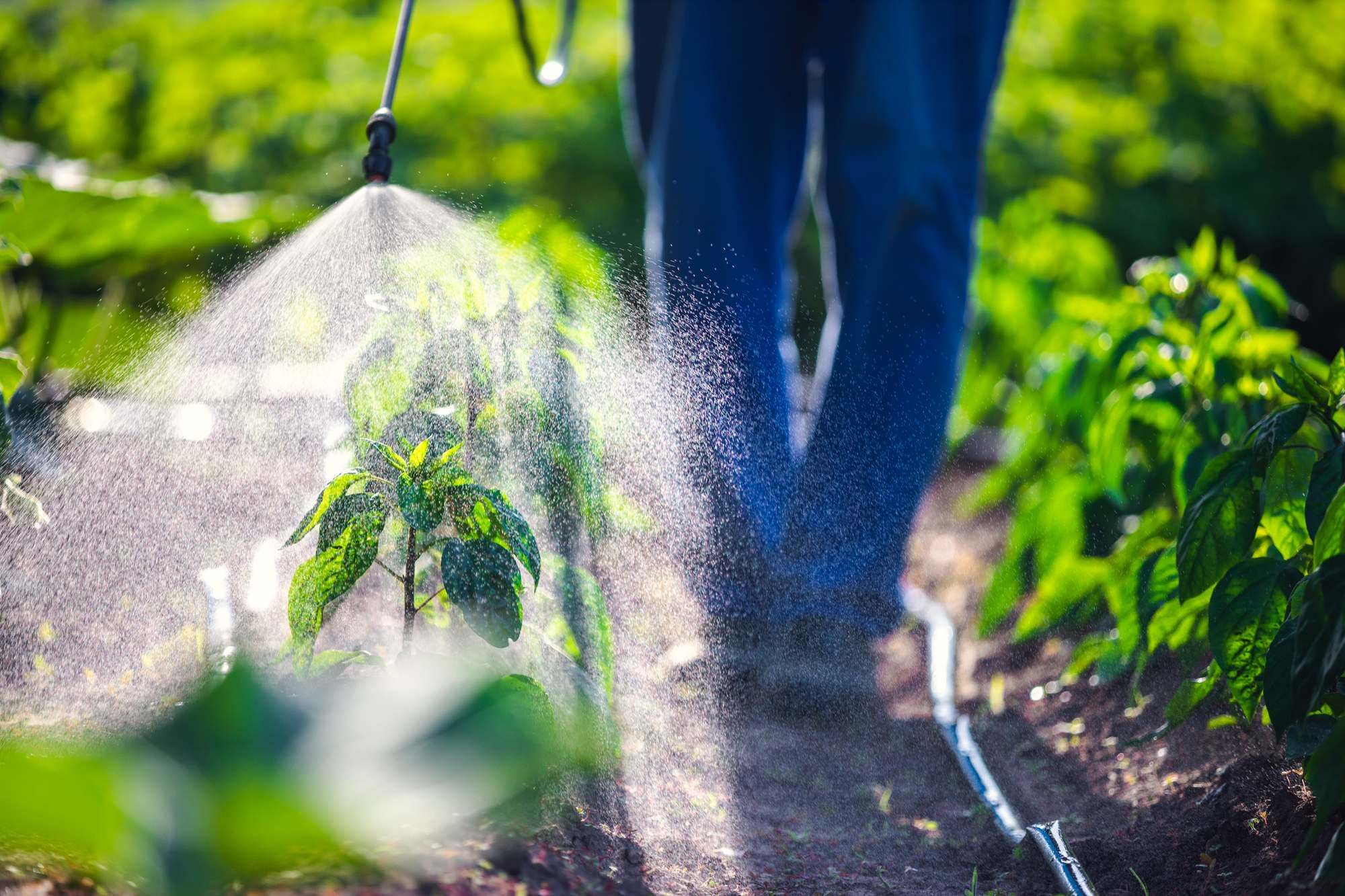Top Class Actions’s website and social media posts use affiliate links. If you make a purchase using such links, we may receive a commission, but it will not result in any additional charges to you. Please review our Affiliate Link Disclosure for more information.
Roundup is one of the most popular weed killers amongst home gardeners and crop farmers alike. Glyphosate, Roundup’s main ingredient is one of the most potent weed killers available for purchase. Aside from killing unwanted weeds, glyphosate is the topic of heated debates. Roundup cancer lawsuits being launched in several countries have amped up the controversy. Many are left wondering what the ingredients in Roundup are and if they are actually harmful.
Roundup Ingredients Overview
What is Roundup exactly? Some studies show that Roundup’s star ingredient is carcinogenic, while other studies claim that glyphosate is low in toxicity. There does not seem to be a clear answer on whether or not Roundup ingredients are causing cancer. Many farmworkers who are regularly around the herbicide believe Roundup caused their cancer diagnosis. While pure glyphosate is reportedly probably not dangerous, the mixture of chemicals in Roundup could be.
U.S. News reported on glyphosate, stating, “To start, very little is known about how much of the pesticide is in peoples’ bodies or diets. Humans can be exposed to glyphosate through food, drinking water and working in the agriculture industry, among other things. The Centers for Disease Control and Prevention regularly tests Americans to gauge their exposure more than 300 chemicals – but not glyphosate.”
The list of Roundup’s ingredients are:
- Isopropylamine salt of glyphosate
- Water
- The ethoxylated tallow amine surfactant
- Organic acids of glyphosate
- Isopropylamine
And, less active Roundup ingredients include:
- Polyoxyethylene alkylamine
- FD&C Blue No. 1
However, there is a problem knowing exactly what is in Roundup, because Monsanto reportedly is not required to include a full list of Roundup’s ingredients to the public.
The U.S. and Europe require print that shows how much active ingredients are in Roundup, but for other inactive ingredients, they simply are not required to be noted.
According to The Scientist, Northeast Ohio Medical University’s neurotoxicologist Vanessa Fitsanakis said: “So that makes it very difficult for a toxicologist to test the different ingredients to figure out what’s the most toxic, or what’s contributing to it. From a research perspective, I can’t tell which component might need to be changed in those formulations because I don’t know what some of those components are.”
Are the Roundup Ingredients Toxic?
The ingredients in Roundup are probably toxic, although evidence is mixed and nothing has been conclusively proved. When Roundup is inhaled or swallowed, it can cause irritation, burning, vomiting, diarrhea, and other symptoms. Roundup can be fatal to humans or animals if it is swallowed.
The ingredients in Roundup can cause serious digestive issues if a person experiences overexposure to the product.
When researching the level of harm Roundup’s ingredients have on animals, it has been found that injecting animals with glyphosate showed a slowed function of the liver.
Some research shows that long periods of exposure to Roundup can lead to chest pains, breathing complications, cognitive impairment, and more.
Furthermore, the World Health Organization decided that glyphosate is most likely cancer-causing.
Are the Roundup Ingredients FDA Approved?
When it comes to the FDA’s regulations on Roundup’s ingredients, their main concern is ensuring that pesticide residues on foods do not go over the set limits created by the U.S. Environmental Protection Agency (EPA). As long as residues on crops are under the established limit, then the EPA says the crops are safe to be consumed. The limit set by the EPA for glyphosate on crops like corn, grains, fruit, and more are evaluated by a range of 0.1 to 310 parts per million.
According to the FDA, the “EPA evaluates pesticides to ensure that they are safe for human health and the environment when used according to label directions. EPA is responsible for issuing regulations establishing, modifying, suspending, or revoking tolerances, which are limits on the amount of a pesticide chemical residue a food can contain. Tolerances are set at levels that provide a reasonable certainty of no harm.”
The EPA maintains that there is no evidence that shows Roundup’s ingredients cause harm to humans. The EPA also says there is no evidence that Roundup causes cancer. The website states: “The Agency concluded that glyphosate is not likely to be carcinogenic to humans. EPA considered a significantly more extensive and relevant dataset than the International Agency on the Research for Cancer (IARC).”
Where is Roundup Banned?
According to research from Sustainable Pulse, Roundup is banned in 21 countries as of 2019. Roundup’s ingredients being potentially carcinogenic or at least causing some bodily or environmental harm has resulted in many countries banning Roundup. Some cities or countries have not banned Roundup in totality, but they have restrictions on its use. Countries in Africa, Asia, Europe, North and Central America have either restricted use or banned Roundup. In Canada, Roundup is banned in Ontario and other provinces.
Has There Been a Recall on Roundup?
Although Roundup is banned in some countries and Roundup cancer lawsuits are prevalent, there have been no recalls on the product or its main ingredient glyphosate. Roundup is still widely purchased because of its effectiveness to kill unwanted plants. There is little denying that Roundup does what it is supposed to do, and there are not many alternatives that produce the same results on farms and gardens.
Aside from its popularity, the confounding nature of Roundup’s ingredients makes it hard to recall. So, the massive debates wage on while Roundup is still on shelves.
Perhaps, if there was a clear line drawn in the sand that produced evidence without a doubt that Roundup’s ingredients are carcinogenic, then there may be a recall in the future.
Do YOU have a legal claim? Fill out the form on this page now for a free, immediate, and confidential case evaluation. The Canadian lawyers who work with Top Class Actions will contact you if you qualify to let you know if an individual Roundup glyphosate cancer lawsuit or Roundup class action lawsuit is best for you. [In general, Roundup lawsuits are filed individually by each plaintiff and are not class actions.] Hurry — statutes of limitations may apply.
ATTORNEY ADVERTISING
Top Class Actions is a Proud Member of the American Bar Association
LEGAL INFORMATION IS NOT LEGAL ADVICE
Top Class Actions Legal Statement
©2008 – 2024 Top Class Actions® LLC
Various Trademarks held by their respective owners
This website is not intended for viewing or usage by European Union citizens.
Get Help – It’s Free
Join a Free Canada Roundup Class Action Lawsuit Investigation
U.S. citizens, click here for the U.S. Roundup Cancer Investigation.
If you qualify, an attorney will contact you to discuss the details of your potential case at no charge to you.
PLEASE NOTE: If you want to participate in this investigation, it is imperative that you reply to the law firm if they call or email you.














